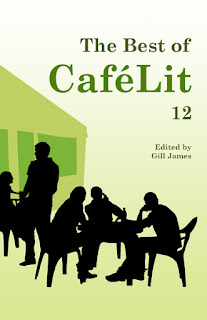Why did you
decide to collect these particular stories together? What is the
overriding theme here for you
I
hope this doesn’t sound too weird, but I chose these stories with my dear
departed mother in mind. Mom passed away in 2011. We were very close. She knew
how much I loved to write, yet had been putting off jumping in and making even the
tiniest of beginnings due to many reasons (family, career, the usual suspects).
In one of the last conversations we had, she counseled me to ‘Start following
your dream, Jim. Before it’s too late.’ You know what? She was right. I took
her advice. The night after that conversation, I took the leap and committed to
start writing every day with the idea in mind of trying to be the best writer I
could be. I’m glad I did! This was back in 2011, and it was the best thing I've
ever done. I love writing, and this collection of stories, “Where the Heart
Is,” is a book I’m sure Mom would have liked. The stories are character-driven
and have a positive message, both themes that my mom enjoyed in the books she
read. Mom, these are for you!
I love the
cover. Why was this particular picture important?
I’m
so glad you like the cover. I do, too! The inspiration came from one of the
photos on the calendar that hangs in the small room that is my writing space. I
have an appreciation for lakes, and I love to sit and look out over them and
enjoy their beauty. Being on a lakeshore is also a nice time to contemplate
life. The cover represents both of those quiet pastimes. Thank you to Martin
James for helping me select the cover image and also for the final great
design. It’s perfect!
You worked with
our intern, Fatima, on this collection. Can you tell us a little
about that process?
Heartfelt
kudos go out to Fatima! She was wonderful to work with. I appreciated that she
was conscientious, thorough, and she also gave me some great input. I’d love to
use her again if that were ever possible!
Jim, you’re a
prolific writer of short stories. How do you manage to keep finding
inspiration?
That’s
a very kind comment, Gill. Thank you very much. I’ll answer by reiterating that
I love to write, and that I’ve always wanted to be a writer. Seven years after
dedicating myself to writing in 2011, I started sending my work out for publication.
You published my first story, “Remembrance Day,” in 2018, and it gave me a huge
boost in confidence. Thank you so much for that! I am a very quiet person. I do
not mind being by myself at all. I love to go for walks and read. Throughout my
day, I’m always thinking about possibilities for stories or poems. When the
idea comes to me, I’ll write it down. Today, for example, I was playing with my
yo-yo. (Yes, you heard me right, my yo-yo. It’s part of my morning routine LOL!)
The idea of a poem came to me as I was doing an “Around the World” move. I went
upstairs and jotted the poem down in my notebook. I went over that first draft
and liked it. I then wrote the poem. I still liked it. It will be added to my
new poetry collection, “Quantum Moments.” Ideas like that happen to me all the
time, and I’m glad that they do! It helps to keep writing interesting,
challenging, and fun.
Do you have any
advice for those who are new to writing short stories?
Yes.
Try to write every day. If you have a story you are working on, keep at it.
Once you finish, review it, make sure it’s the way you want it, and then write
another one. Stay with it! Ray Bradbury said, “If you write a story a week for
a year, you’ll have 52 stories at the end of that year. I’ll guarantee at least
one of them will be good.” To that I’ll add, probably more than one. The point
is, keep writing. You only get better by writing. I’ll also add this: write for
yourself. Write stories that you would want to read. If you like what you’ve
written, that’s the main thing. You can never please everyone, so you have to
please yourself. At the end of the day, you can say, “You know what? I don’t
care what others say, I think my story is pretty good.” When you get to that
point, when you like your own work, it’s a great place to be.
Are you working
on any new projects?
Yes.
Right now, I’m doing the final edits for “The Rebels,” which is Book 5 of my
Creekside Chronicles YA (and older) dystopian/adventure series. It’s almost
ready to be published. I’m also in the process of publishing “Periodic Haiku,”
a collection of 5-7-5 syllable haiku poems based on the first 118 elements of
the periodic table. And I’m also working on a collection of poems to be
published in 2026 entitled “Quantum Memories.”
Do you have any
events planned?
No
events planned at this time except for ‘soft releases’ on FB and my blog.
Note:
Thank you so much, Gill, for the opportunity to be on your blog. Your continual
support of my writing efforts is stupendous and means the world to me! Again,
thank you so much.
See Jim's web site here: https://theviewfromlonglake.com



.png)














